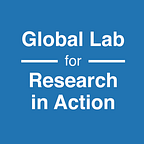When women’s “economic empowerment” does not improve agency
by Emily Marshall with Dr. Leyla Karimli
Whether you use the term economic empowerment or economic strengthening, there seems to be an unspoken assumption that if women are empowered with the ability to improve their own economic circumstance, their lives will be vastly improved.
And of course this is true… to an extent. Economic empowerment; village savings and loans associations; and poverty alleviation programs are all essential to improving the lives of women around the world.
But, we make a huge assumption when we believe that women who are economically empowered also have the ability to negotiate within their own household and make decisions about how to spend or save, what to buy or not, and when to expand a business or embark on a new livelihood.
What is missing is the recognition that within a family, these decisions are often not made individually. Does economic empowerment result in improved agency, and therefore power? Not necessarily.
Research in Burkina Faso shows that while economic empowerment interventions increased women’s involvement in making decisions pertaining to children, they have no impact on women’s decision-making power in other dimensions of household life.
You might be thinking: “But this is Burkina Faso which is still ranked 130th out of 149 countries in the Global Gender Gap Index.”
But as we recognize International Women’s day, I’ve been giving a lot of thought to the research on economic empowerment and gender norms. We see similar impediments holding women back around the world.
Just take a look at what we’ve witnessed — and experienced — during a pandemic that has seen women disproportionately leave the workforce to care for children, home-school their children, or take care of sick relatives.
You might assume that this occurs when women earn less than their partners, making it more economically feasible for them to take on this additional burden and reduce paid work or leave the workforce altogether.
Interestingly, this is not the case. Even in partnerships where women earn the same or more than their partner, women still took on this additional burden. Why?
Whether in Burkina Faso or the United States, there are cultural and social norms at play and gender constraints that are typically embedded in larger patriarchal structures.
Research undertaken with Oxfam across five rural communities in Colombia, Ethiopia, the Philippines, Uganda and Zimbabwe, found women’s higher levels of decision-making power, education and income do not appear to be associated with lower care workloads, pointing to the need to shift social norms that may constrain the ability to negotiate on care even among otherwise ‘empowered’ women.
So, what can we learn from these studies across the world and apply here in the United States?
Economic empowerment does not equal agency.
In Burkina Faso when economic strengthening was coupled with family coaching that addressed — amongst other topics — gender norms, the effects of economic strengthening were stronger.
Discriminatory social norms and beliefs about gender overrule the bargaining power obtained by women through their improved access to assets and income.
Programs like these across the globe can teach us valuable lessons on how to address structural societal systems that are holding women back.
We need to shift social norms, cultural expectations, and attitudes by working with men as well as women.
Emily Marshall is an intern at the Global Lab for Research in Action and a teaching assistant at the University of California, Los Angeles. Marshall will be graduating from UCLA in June with a Master of Public Policy, specializing in International Development Policy.
Dr. Leyla Karimli is an Assistant Professor at the Social Welfare Department at UCLA’s Luskin School of Public Affairs. Karimli is an interdisciplinary scholar of social development whose research examines the links between multi-dimensional poverty, multilevel social exclusion, and individual-level psychosocial outcomes. Karimli’s research contributes to generating robust empirical evidence, using experimental and quasi-experimental multilevel longitudinal research design. Dr. Karimli has more than 15 years of international research and practice experience focusing on poverty and social exclusion, including working with international development agencies in the former Soviet Union and Sub-Saharan Africa.
If you are interested in learning more about how the Global Lab transforms research into action, please contact us at global-lab@luskin.ucla.edu.
